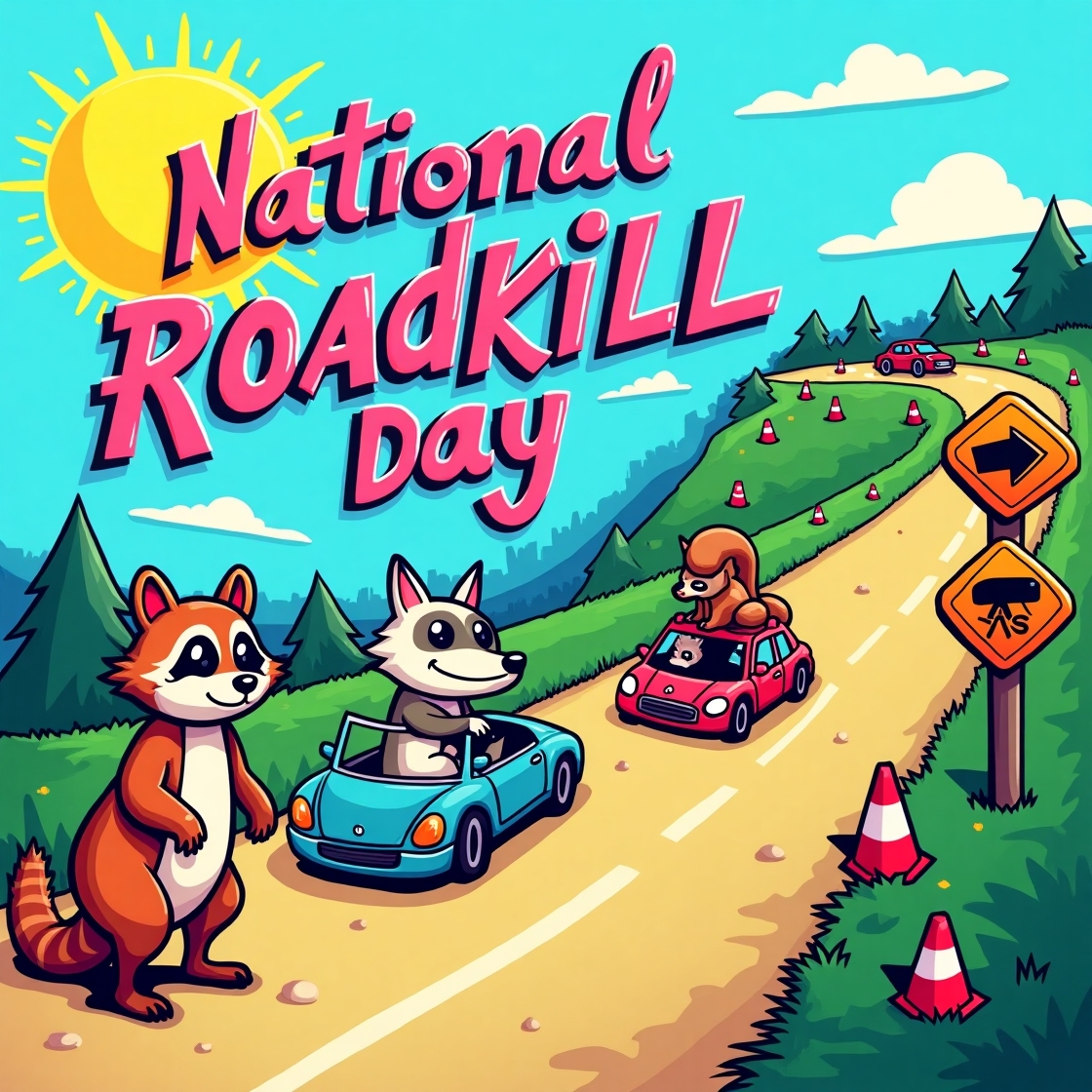National Roadkill Day
National Roadkill Day may sound unusual at first, but it’s actually a fascinating tribute to a unique aspect of American roadside life. This day is more than just about food — it’s about Awareness, sustainability, and understanding the deep connection between people and the Wildlife around them. In fact, it’s one of the quirkiest and most thought-provoking observances on the calendar.
What Is Roadkill Cuisine?
Observed annually on September 25th, National Roadkill Day spotlights a practice that’s both ancient and modern: salvaging roadkill as a legal and eco-conscious food source. In some U.S. states, this is not only legal but also encouraged. Because animals are often struck by vehicles through no fault of their own, advocates argue that salvaging the meat reduces waste. American food traditions, especially in rural regions, have long embraced this practice as part of a respectful nose-to-tail philosophy.
While it might raise eyebrows, roadkill cuisine is not new. It has roots in Native American culture and frontier living, where hunters used every part of the animal out of necessity. Today, it’s resurfacing in a more modern, eco-aware context. Enthusiasts believe it reduces waste and offers a more humane alternative to industrial meat. According to Wikipedia, roadkill is defined as an animal or animals that have been struck and killed by motor vehicles.
Beyond the Plate: Wildlife Awareness and Sustainability
Furthermore, National Roadkill Day shines a light on road safety and environmental impact. For instance, it’s an opportunity to educate drivers on how to avoid collisions with animals, especially during migration or mating seasons. Moreover, many wildlife crossings and eco-bridges exist to reduce the number of animals killed on roads — a topic that deserves far more attention. As a result, this day isn’t just for carnivores or adventurous chefs; it’s for conservationists too.
In addition, communities across the country host cook-offs, awareness walks, and wildlife talks to honor the day. Some chefs even prepare gourmet dishes featuring legally obtained roadkill. For example, recipes for venison chili or squirrel stew aren’t just about flavor — they represent sustainability in action. Likewise, they’re often served with local produce, reinforcing the connection between land and plate.
However, National Roadkill Day isn’t only about food. It’s also a reminder of how urbanization affects native species. Roads disrupt natural migration patterns and habitats. Consequently, animals face higher risks of death, and ecosystems suffer. Not only that, but some states are even developing apps to report roadkill incidents — helping biologists track animal behavior and improve safety infrastructure.
Why This Day Matters
All in all, this day is a blend of humor, heritage, and hard truths. Although it may provoke chuckles, National Roadkill Day offers a deeper message: to live in harmony with nature, we must respect what it gives — even in unexpected ways.

